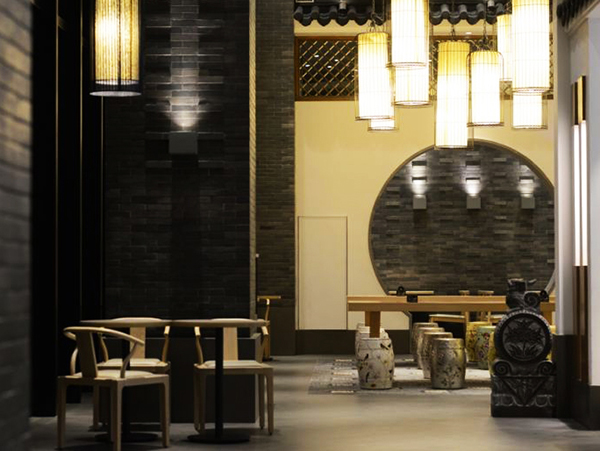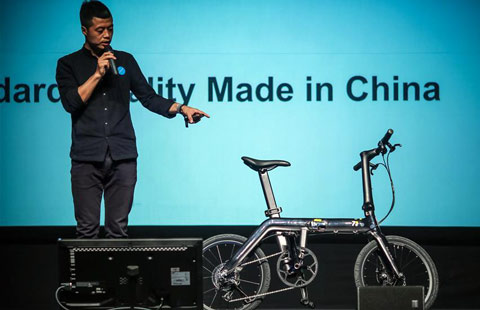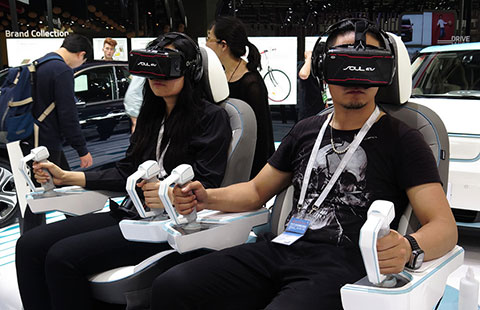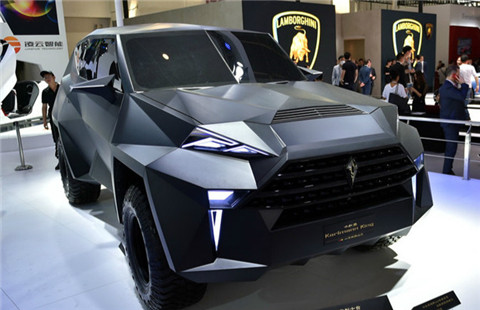KFC opens concept store in Shanghai as fast food enters the digital age
By Wang Zhuoqiong (China Daily) Updated: 2016-05-04 07:09
 |
|
Interior view of the KFC store in Shanghai. [Photo provided to China Daily] |
The restaurant is much like so many others across the country, designed tastefully to look like a classical Chinese garden.
The main dining space, surrounded by green bamboo, is generously filled with flowers, has a moon-shaped doorway, and is decorated in Great Wall gray and jade.
But what's surprising is that it's actually owned by one of biggest names in global fast food: Yum Brands Inc's KFC. And it's been completely designed digitally, in collaboration with Baidu Inc, the Chinese web services giant.
Located inside Shanghai's National Exhibition and Convention Center, the "Original+" concept outlet offers customers a digitalized experience, covering everything from ordering to paying, as well as other types of entertainment.
Joey Wat, CEO of KFC China, said "Original+" combines both the company's "Original Recipe" chicken and innovative technologies.
Consumers place their orders using Baidu's virtual personal assistant, Duer.
Other technologies used include upgraded automatic ordering machines and Music Charging Tables, where customers can place cellphones capable of wireless charging inside a charging area, so that while the devices are being energized, their owners can relax by enjoying a list of songs customized by BaiduMP3 for the store.
KFC sees the development of the concept store as a move to reposition itself to keep up with the latest in social and consumer demands, by encompassing the internet and mobile services, particularly to attract the younger generation.
"The KFC concept store is a very interesting experiment," said Jason Yu, general manager of the consumer research firm Kantar Worldpanel China.
"It is expected to generate increased customer experience, and raise efficiency for restaurants.
"And in turn it is expected to attract more young and middle class customers."
The advent of such high-tech dining, however, is not expected to fully offset arguably the biggest challenge being faced by the fast-food industry: Chinese consumers increasingly opting for healthier eating, within an array of different choices, he said.
Another fast-food chain, McDonald's Corp, meanwhile, is also betting big on digital growth.
It has already unveiled its Experience of the Future restaurant, which offers digital, personalized and customized experiences.
This year the global fast-food giant will also upgrade its 150 Create Your Taste restaurants in first-tier Chinese cities, offering digital services and do-it-yourself burgers.
Yum's sales accelerated faster in China than Wall Street expected in the first quarter of 2016, a year in which the company plans to spin off its China unit. Officials said the sales were boosted particularly by the company's Spring Festival KFC chicken bucket promotions,
Also the owner of the Pizza Hut and Taco Bell, the China unit is Yum's top profit-driver. The unit's planned sale has garnered intense interest, attracting high-profile potential suitors and sparking speculation it will fetch a rich valuation.
A consortium backed by sovereign fund China Investment Corp has already expressed interest in buying a majority stake.
Yum said last week that sales at its China restaurants open at least a year rose 6 percent in the first quarter. Its KFC restaurants, the majority of its 7,205 stores in the division, posted a 12 percent rise in same-store sales, while the smaller Pizza Hut Casual Dining posted a 12 percent decline.
- Made-in-China subsea pipeline device heralds change
- Gree looks to other avenues for growth
- Space engineers eye industrial robot space
- Missile maker to offer $6.7b deals online
- Shanghai Jiangnan Shipyard ready to deliver world's largest LEG vessel
- Top 10 least affordable cities to rent in
- Running an Airbnb business is harder than it looks
- KFC opens concept store in Shanghai as fast food enters the digital age

















